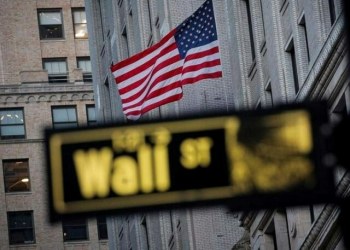Asian stocks fell, dragging the regional benchmark equities gauge lower for a second day, led by raw-material producers amid concern slower growth in China will curb the global economic recovery.
BHP Billiton Ltd. (BHP), the world’s biggest mining company, dropped 1.6 percent in Sydney. Newcrest Mining Ltd., Australia’s largest gold producer, sank 5.8 percent as the bullion extending losses after yesterday posting its worst slump in three decades. Softbank Corp. slumped 8.9 percent after Dish Network Corp. topped the Japanese wireless carrier’s bid for control of Sprint Nextel Corp.
The MSCI Asia Pacific Index lost 0.9 percent to 135.83 as of 11:44 a.m. in Tokyo, with more than three shares falling for each that rose. The gauge retreated yesterday from the highest level in 20 months after reports showed Chinese growth and industrial production expanded less than economists estimated and gold plunged the most since 1983.
“The Chinese economy is heading toward slower growth than what we’ve seen in the past decade, which means it’s a lot less investment-intensive with less demand for commodities,” said Nader Naeimi, Sydney-based head of dynamic asset allocation at AMP Capital Investors Ltd., which manages $126 billion. “We’ve reduced our equity exposure in the short-term as economic data show signs of softening. The market needs to correct at least 10 percent.”
Japan’s Nikkei 225 Stock Average (NKY) slid 1.1 percent and South Korea’s Kospi index lost 0.9 percent. Taiwan’s Taiex Index declined 0.5 percent, while Australia’s S&P/ASX 200 Index fell 0.6 percent. Hong Kong’s Hang Seng Index slipped 1 percent, while China’s Shanghai Composite Index dropped 0.4 percent. New Zealand’s NZX 50 Index retreated 0.8 percent.
Relative Value
Futures on the S&P 500 Index rose 0.3 percent. The gauge dropped 2.3 percent yesterday, the biggest decline since November, after the China gross domestic product report. U.S. stocks extended losses as explosions rocked the finish line area of the Boston Marathon. Almost all of the drop came before the incident. Three people were killed and at least 128 hospitalized, police said.
The MSCI Asia Pacific Index (MXAP) gained 5.9 percent this year through yesterday amid signs the U.S. economy is recovering and as Japanese equities rallied on speculation the Bank of Japan will step up efforts to stimulate its economy. Shares on the gauge traded at 13.9 times average estimated earnings compared with 14 for the Standard & Poor’s 500 Index and 12.5 times for the Stoxx Europe 600 Index, according to data compiled by Bloomberg.
Indiscriminate Sell-off
“Brace yourselves today,” said Evan Lucas, a market strategist at IG Markets Ltd., a provider of trading services in Melbourne. “The sell-off will be sharp and indiscriminate, loss will be across the board, not even the defensives will escape the flight to safety today.”
Only health-care stocks advanced among the 10 industry groups in the MSCI Asia Pacific Index. Raw-material producers posted the biggest decline. Gold fell as much as much 1.9 percent today, extending the biggest decline since 1983. Silver, platinum, and palladium dropped, while crude oil futures headed for the lowest level since June 28.
BHP Billiton decreased 1.6 percent A$31.81 in Sydney. Newcrest Mining sank 5.8 percent to A$16.88. Zijin Mining Group Co., China’s largest gold producer, fell 3 percent to HK$2.26 in Hong Kong. Glencore International Plc (805), the world’s biggest publicly traded commodities supplier, dropped 3.5 percent to HK$38.75 in Hong Kong.
Softbank, Japan’s third-largest mobile-phone company, declined 8.8 percent to 4,270 yen in Tokyo. Dish Network offered $25.5 billion for control of Sprint Nextel Corp., sparking concerns the Japanese wireless carrier may raise its own bid.
Source: Bloomberg























